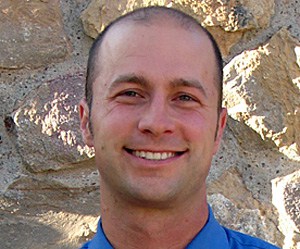
Bill McCamley
Like everyone, I was horrified by the recent shooting in Tucson. Also like many, I believe that we should all step back, examine toxic political conversations, and treat people with whom we may not agree politically with more respect.
However, this topic has been extensively covered since the shooting and has masked another critical issue that needs to be discussed: people with mental health issues and how we care for them.
When I served on the Doña Ana County Commission, there was an incident southeast of Las Cruces in which an armed, mentally ill man barricaded himself in a house. The neighbors, justifiably fearing for their safety, called police. A standoff ensued before the home was entered and the man was apprehended. Luckily no one was hurt.
However, at the next county commission meeting, the mother of the man came before the commission and complained about how the police handled the situation, asking for more sympathy and understanding for her sick son.
Her concerns haunted me for a while. How much responsibility should a sick person have over their actions? Are there better ways to approach these situations? Could something have been done earlier to avoid the immediacy of the standoff?
An unpleasant history
Society’s history with the mentally ill is not pleasant. In the western world, people were originally thought to be witches or possessed by demons. Even long after these notions were abandoned, sick patients were housed in asylums where treatment included everything from restraints to physical abuse. Because doctors did not know what to do, those affected by mental disorders were simply removed from communities and forgotten.
As we have progressed in our humanitarianism and our understanding of human thought and behavior, standards and practices have improved dramatically. However, the field of mental health still faces many issues.
Because of the overall negative public feeling toward mental problems, the difficulty in understanding them, and the absence of hard solutions, funding for research and treatment is usually far down on the totem poll of governmental budget priorities. A lack of funding for salaries, combined with the difficulty of the field itself, creates problems in attracting quality individuals to research problems and treat individuals exhibiting symptoms. Therefore, those who may have had help and therefore learned to cope in society can fall through the cracks.
By all accounts Jared Loughner, the Arizona shooter, was one of these people. He was kicked out of community college after repeatedly threatening teachers, and officials would only agree to reinstate him after he completed a mental health evaluation. He apparently experienced problems with substance abuse. Many experts think that he showed symptoms of young-onset schizophrenia.
Hard questions
So the question must be asked: Was this shooting the kind of unavoidable tragedy that we have to just deal with, or was there more that could have been done to help Loughner and therefore avoid this type of heinous crime?
For me, it is a tough subject to grasp. On the one hand, I understand the problems in the mental health field, and that these folks are sick and that proper treatment can help them get better.
On the other hand, coming up with resources for this effort is a difficult task. Government deficits are bad and getting worse, and raising taxes for any reason in an economic downturn is hard to justify. The combination of frozen spending with an absence of new resource collection leaves only a possible redirection of money and hard questions.
Should funding be cut from job creation efforts? Transportation? Public safety? And if resources are re-directed, what are the consequences to those areas?
Furthermore, Americans sometimes look to make excuses for people’s actions too easily. Many blame their problems on families, job situations, the government, or mental issues. While these are undoubtedly factors in many people’s situations, there is truth to the statement that people need to take responsibility for themselves and their situations.
And as for Loughner specifically, I have trouble finding any sympathy. A relative of Gabe Zimmerman, a congressional staffer who died in the shooting, is a friend of mine. As someone who has been a public official, the threat of physical violence at public gatherings, where dialogue with constituents is absolutely critical to representative government, is infuriating.
We must follow through on this discussion
Perhaps we need take a “tough on the problem, tough on the causes of the problem” approach. People who commit violent actions should be punished, regardless of the presence of a mental illness. However, if funding for mental health initiatives can be shown to decrease violent behavior, maybe the positive investment it can provide our communities makes it worth doing.
Whatever the possibilities, I do know one thing. We have to talk about, and more importantly continue to talk about, these problems. Too many times we begin to address mental health after a violent tragedy (Columbine High School, Virginia Tech, etc.) but fail to follow through on the discussion. Now would be a good time for this to happen.
McCamley is a former Doña Ana County commissioner.
